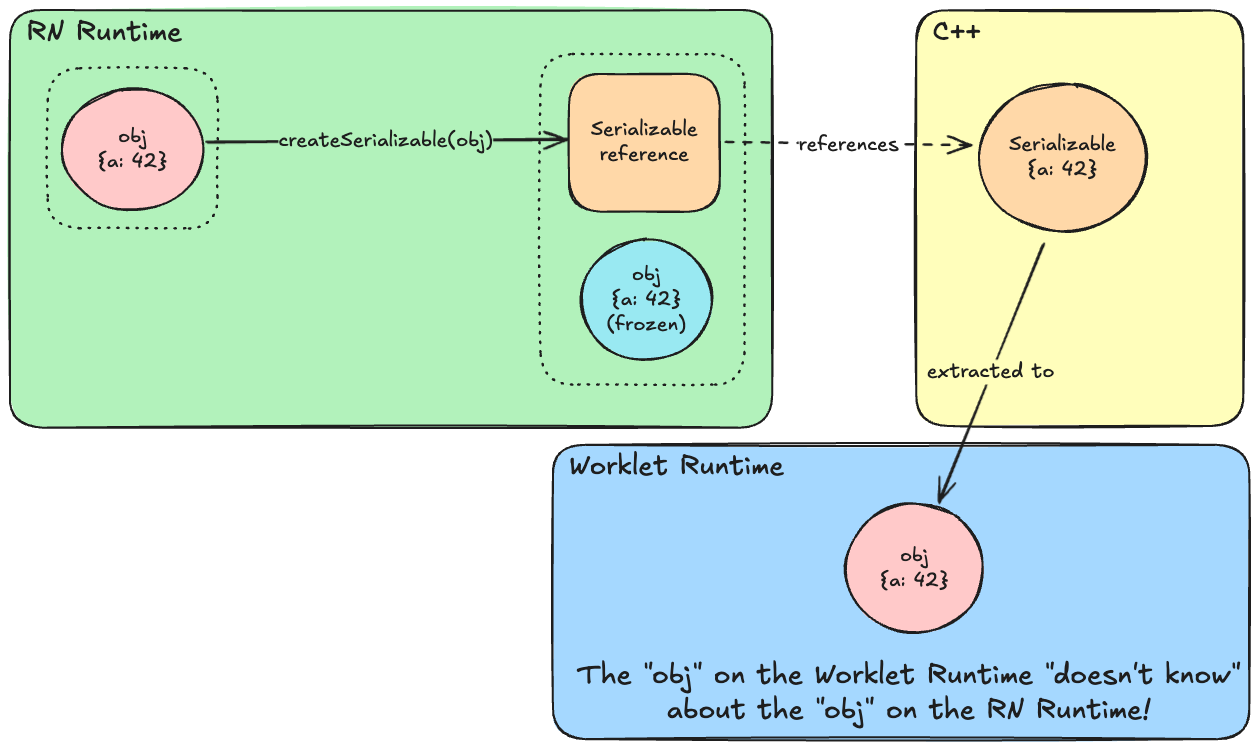createSerializable
createSerializable recursively converts JavaScript values into serializable references that can be used on different Runtimes than RN Runtime.
The reference cannot be manipulated, as it doesn't represent any standard JavaScript object. Changes to the original value don't affect the Serializable.
It handles various data types including primitives, objects, arrays, functions, and special cases like host objects and worklets.
To prevent misconceptions Worklets library freezes the original value for object-like values and for arrays.

Functions like runOnUI, runOnRuntime, runOnJS, executeOnUIRuntimeSync and runOnUIAsync automatically convert values to Serializable references.
Usage
import { createSerializable, runOnUI } from 'react-native-worklets';
const object = {
a: 1,
b: 2,
c: 4,
};
object.c = 3; // <-- Correct: you can modify the object before serializing it
createSerializable(object);
object.a = 10; // <-- Warning: You can't mutate the object after serializing it
runOnUI(() => {
object.a = 10; // <-- Warning: You can't mutate the object after serializing it
console.log(object); // { a: 1, b: 2, c: 3 }
})();


Type definitions
type SerializableRef<T = unknown> = {
__serializableRef: true;
__nativeStateSerializableJSRef: T;
};
function createSerializable<T>(value: T): SerializableRef<T> {
return value as SerializableRef<T>;
}
Remarks
- The function automatically detects the type of the input value and applies appropriate serialization strategies.
Supported types:
| Type | Supported |
|---|---|
| string | ✅ |
| number | ✅ |
| boolean | ✅ |
| object | ✅ |
| array | ✅ |
| function (non-worklet) | ✅ |
| HostObject | ✅ |
| worklet | ✅ |
| Map | ✅ |
| Set | ✅ |
| ArrayBuffer | ✅ |
| RegExp | ✅ |
| Cyclic objects | ❌ |
| Objects with custom prototype | ❌ |
- For objects and arrays, it recursively processes nested properties
- The function includes cycle detection to prevent infinite recursion
- Objects are frozen after serialization to prevent accidental modifications that won't propagate to the Serializable
- Functions that aren't worklets are serialized as references to function instances on the respective runtime